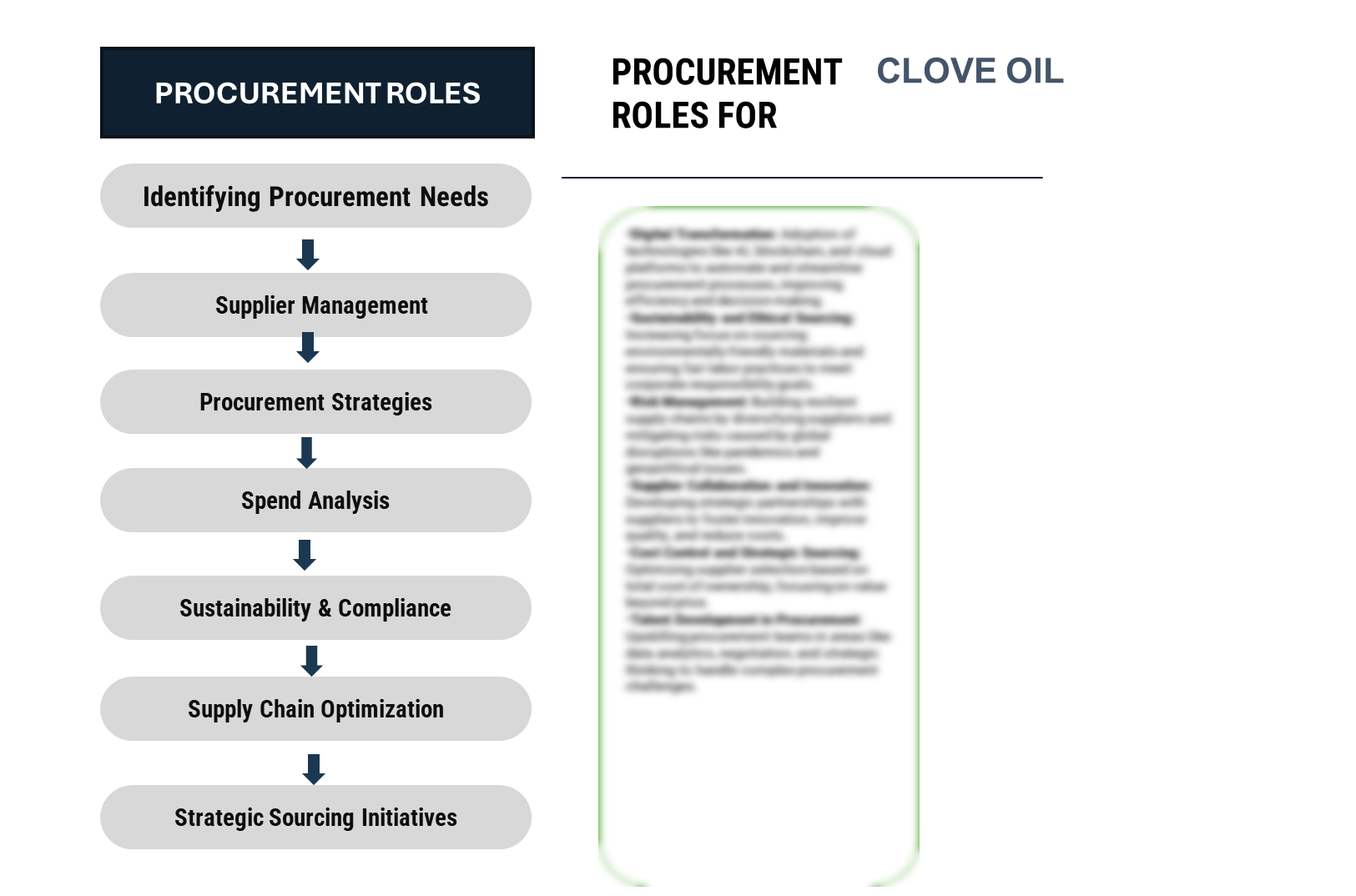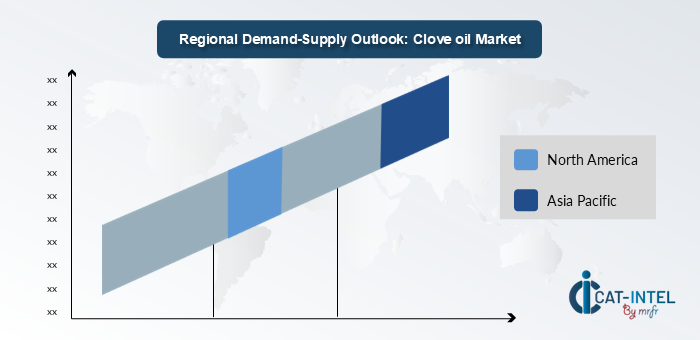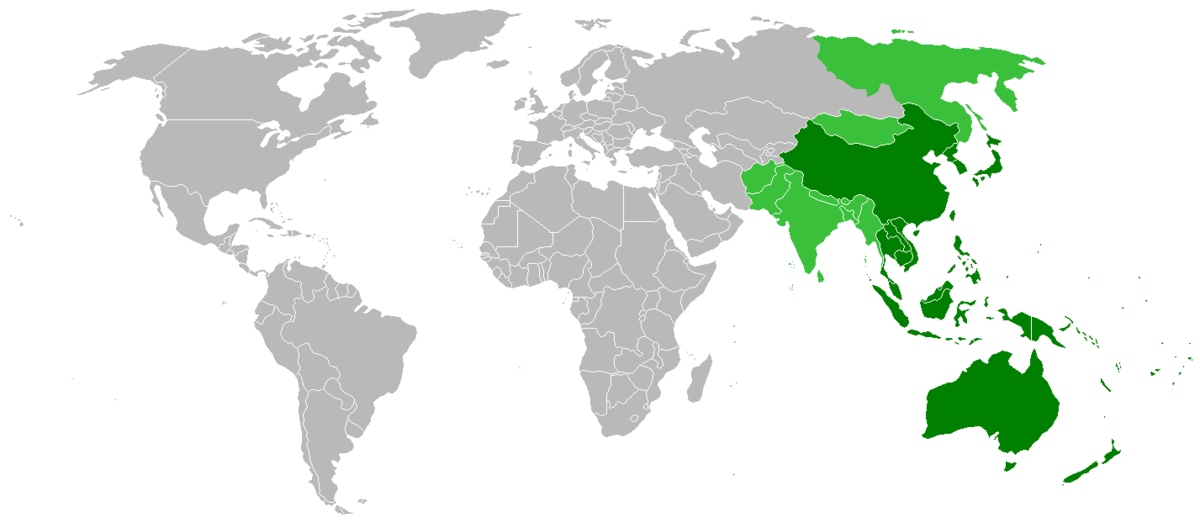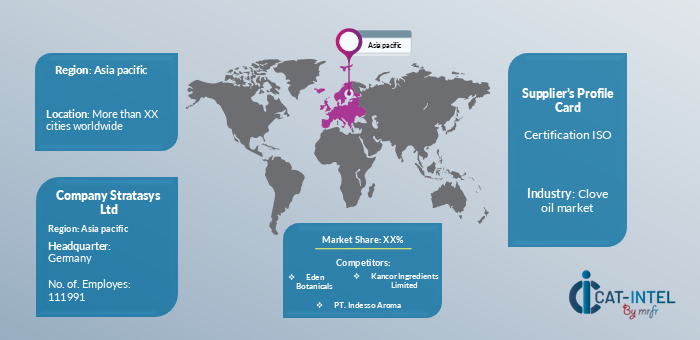Summary Overview
Clove Oil Market Overview
The global clove oil market is experiencing steady growth driven by the rising demand for natural essential oils in the cosmetic, food, and pharmaceutical industries. As the popularity of organic and plant-based products continues to increase, clove oil, known for its antiseptic, anti-inflammatory, and analgesic properties, is seeing expanded usage. This market benefits from applications in a variety of sectors, particularly in medicinal and wellness products such as essential oils, pain relief creams, and oral health products like toothpaste.
Market Size and Growth ProjectionsThe clove oil market is projected to grow significantly through 2032. The growing consumer demand for natural, holistic wellness solutions, combined with an increase in clove cultivation, is fuelling this market. The global clove oil market is expected to witness a healthy CAGR (compound annual growth rate) from 2024 to 2032, driven by the increasing use of natural products in food, beverages, and healthcare.
Market Size: The global clove oil market size is expected to reach USD 120 million by 2032.
Growth Rate: The market is projected to grow at a CAGR of around 7.5% from 2024 to 2032.
Growth rate :7.5%
Sector Contributions
Health & Wellness: Growing demand for clove oil in the wellness and healthcare industry, particularly due to its antiseptic, anti-inflammatory, and antimicrobial properties.
Cosmetics & Personal Care: Use of clove oil in various cosmetic products such as skincare, oral health items, and fragrances is driving market expansion.
Food & Beverages: Clove oil is increasingly used as a flavouring agent in various foods and beverages.
Key Trends and Technological Innovations
Sustainability Initiatives: As demand for clove oil increases, so does the focus on sustainable farming methods, including organic farming techniques and water-efficient irrigation practices. This trend supports long-term market growth.
Technological Advancements: Improvements in essential oil extraction methods, such as steam distillation and cold-press techniques, are enhancing oil yield, quality, and accessibility.
Regional Insights
Asia-Pacific: Indonesia remains the largest producer and exporter of clove oil, with India and Madagascar also contributing significantly. As health awareness increases in this region, the market for clove oil continues to grow.
Europe: Growing demand for natural wellness products and essential oils is expected to drive the market in European countries, with clove oil becoming more prominent in personal care products.
Key Growth Drivers
Health Benefits: The rising consumer awareness about the medicinal benefits of clove oil, especially in oral care and wellness products, is a significant driver.
Export Opportunities: The growing global demand, particularly in Europe and North America, presents substantial export opportunities for producers in key regions like Indonesia and India.
E-commerce: Increased online sales of natural health products are helping clove oil reach a broader market, including consumers interested in wellness and natural remedies.
Challenges
Price Volatility: Due to fluctuations in clove production and supply chain constraints, prices may be volatile, affecting procurement strategies for businesses.
Climate Impact: The vulnerability of clove farming to climate change may affect the consistency of supply, which calls for strategic sourcing and risk management.
Overview of Market Intelligence Services for the Clove Oil Market
Market intelligence services offer valuable insights into the clove oil market, providing data on pricing trends, supplier performance, and regional dynamics. These services help stakeholders navigate fluctuations in supply and demand, manage risks, and optimize procurement strategies. Using advanced market analysis tools, businesses can forecast trends, plan for potential disruptions, and identify opportunities for cost savings. Digital procurement tools play a critical role in enhancing supply chain management, allowing businesses to track market conditions and adjust purchasing strategies accordingly.
Procurement Intelligence for Clove oil Market: Category Management and Strategic Sourcing
In the clove oil market, companies are enhancing procurement strategies by leveraging spend analysis and strategic sourcing to optimize costs and supply chain efficiency. As demand grows, particularly in health, wellness, and cosmetics, strategic category management ensures timely access to high-quality clove oil. Sustainability is a key focus, with suppliers adopting eco-friendly production practices. Through market intelligence, businesses can navigate volatility, mitigate

Pricing Outlook for Clove Oil Market: Spend Analysis
The global clove oil market is currently facing a fluctuating pricing environment due to several factors such as production challenges, climate conditions, and increased demand across various industries. These dynamics are contributing to price volatility in the market, like the almond sector.
Our real-time analysis highlights several factors influencing the pricing trends for clove oil:
Rising Production Costs: The cost of clove oil production is impacted by the rising prices of raw materials, labour, and energy, all of which drive overall price increases. Additionally, some regions are experiencing labour shortages, which can further strain supply.
Demand Surge: As consumer interest in natural health products and essential oils grows, particularly in the beauty and wellness industries, clove oil consumption is rising globally. This demand surge is putting upward pressure on prices.
Export and Supply Chain Challenges: Indonesia and the Philippines are key exporters of clove oil, with exports to markets such as the US and Europe. However, logistics and transportation bottlenecks, especially in key growing regions like Southeast Asia, are causing supply chain disruptions, contributing to price volatility.
Climate Impact: Adverse weather conditions, such as droughts in major clove-producing regions like Indonesia, are impacting the supply of raw cloves, which in turn is driving prices higher.
Cost Breakdown for the Clove Oil Market: Cost Saving Opportunities
-
Clove Buds (50%)
Description: Represents the primary cost component, which includes the prices for clove buds from regions like Indonesia and Madagascar, where clove cultivation is most prominent. Clove oil is extracted primarily from the flower buds.
Trends: Clove bud prices can fluctuate based on annual yields, weather conditions, and demand in the spice, pharmaceutical, and cosmetic industries. As of 2024, clove bud prices are expected to increase due to limited supply from major producing regions and higher demand for natural essential oils.
Labor (XX%)
Processing & Extraction (XX%)
Packaging (XX%)
Infrastructure & Overheads (XX%)
Cost saving opportunity: Negotiation Lever and Purchasing Negotiation Strategies
In the almond market, optimizing procurement can yield substantial cost savings and enhance efficiency. Collaborative purchasing allows growers to negotiate bulk discounts, while sustainable farming practices reduce input costs through less water and fewer chemicals. Implementing precision agriculture techniques optimizes resource use, decreasing water and fertilizer expenses. Vertical integration enables producers to lower processing costs, and technology such as drones and data analytics improves productivity and minimizes labour costs. Energy-efficient processing facilities cut utility expenses, and transportation optimization reduces freight costs. Marketing cooperatives also help share advertising costs, allowing producers to maximize profitability while effectively managing expenses.

Supply and Demand Overview of the Clove Oil Market: Demand-Supply Dynamics and Buyer Intelligence for Effective Supplier Relationship Management (SRM)
The clove oil market is experiencing steady growth due to increased consumer interest in natural essential oils, their applications in pharmaceuticals, cosmetics, and the wellness industry. Rising health-consciousness, the surge in demand for natural remedies, and ongoing product innovations are all driving factors in the clove oil market.
Demand Factors:
Health Consciousness: Increasing awareness of the therapeutic benefits of clove oil, such as its antimicrobial and anti-inflammatory properties, is driving demand in the wellness and pharmaceutical industries.
Natural and Organic Products: A rising preference for natural and organic products, especially in the personal care and cosmetic industries, is accelerating the consumption of clove oil as an essential ingredient in skincare products.
Aromatherapy and Wellness: Growing interest in aromatherapy and holistic health practices is increasing the demand for clove oil, which is used in essential oil blends for relaxation and therapeutic purposes.
Food and Beverage Industry: Clove oil is used as a flavouring agent and preservative in the food and beverage industry, contributing to increased demand, particularly in Asia and Europe.
Supply Factors:
Geographical Production: Indonesia, Madagascar, and Sri Lanka are the key producers of clove oil. These regions face challenges such as climate fluctuations and seasonal yield variations, which can impact supply consistency.
Sustainable Cultivation Practices: The adoption of more sustainable farming practices, including organic farming, is improving long-term supply stability and addressing environmental concerns.
Technological Advancements: Innovations in extraction technologies, such as steam distillation and cold pressing, are improving the efficiency and quality of clove oil production, boosting overall supply.
Market Competition: The growing number of players in the market, especially with the rise in organic and natural product demands, has intensified competition and impacts the availability and pricing of clove oil.
Regional Demand-Supply Outlook: Clove Oil Market

The clove oil market is seeing strong regional demand across various parts of the globe, particularly in regions like Asia, Europe, and North America, with growing interest in natural products and wellness. The regional dynamics highlight the interplay between local production capabilities and the increasing global demand for clove oil across diverse industries.
Asia: The Hub of Clove Oil Production and Consumption
Asia, particularly Indonesia and Madagascar, leads the production of clove oil, and the market is also seeing rising demand within the region due to:
Leading Producers: Indonesia remains the dominant producer of clove oil, contributing to a substantial portion of the global supply. The country's favourable climate conditions support high clove production volumes.
Growing Local Demand: The demand for clove oil within Asia is increasing, especially in countries like India, where it is widely used in traditional medicine, cosmetics, and aromatherapy.
Export Markets: Asian countries also serve as important export hubs for clove oil to Europe, North America, and other regions where demand for natural health products is growing.
Health and Wellness Trends: A shift toward natural wellness products is driving the consumption of clove oil in countries like China and India for its therapeutic benefits, especially in dental and skincare applications.

Supplier Landscape: Supplier Negotiations and Strategies - Clove Oil Market
The clove oil market, like the almond market, has a diverse and complex supplier landscape that includes key suppliers of raw materials, equipment, and services vital for the cultivation, extraction, and distribution of clove oil. These suppliers play a crucial role in ensuring the quality, consistency, and sustainability of the supply chain.
The supplier landscape in the clove oil market is primarily driven by key players involved in the production of cloves and the extraction of clove oil, as well as those providing essential agricultural inputs, extraction technologies, and packaging materials.
Key players in the clove oil supply chain collaborate with producers to ensure optimal growing conditions, high-quality production, and sustainable farming practices. Additionally, suppliers of packaging materials are becoming increasingly important due to rising demand for clove oil in health, wellness, and cosmetic products.
Some of the key raw material suppliers and stakeholders in the clove oil market include:
PT. Indesso Aroma
Eden Botanicals
Kancor Ingredients Limited
Flavex Naturextrakte GmbH
The Lebermuth Company
Albion Chemicals Pvt. Ltd.
BASF
Young Living Essential Oils
doTERRA International
Agro Products & Agencies

Key Development: Procurement Category significant development
Development Area |
Description |
Impact |
Sustainable Sourcing |
Increasing focus on sustainable farming and harvesting practices for cloves, minimizing environmental impact. |
Promotes long-term viability and meets consumer demand for eco-friendly products. |
Technological Advancements |
Advancements in extraction technologies such as steam distillation and CO2 extraction to improve oil yield and purity. |
Enhances efficiency, reduces costs, and improves product quality. |
Supplier Collaboration |
Strengthening relationships between clove oil producers and suppliers for raw materials and extraction equipment. |
Ensures consistent quality, lowers procurement risks, and improves supply chain reliability. |
Diversification of Sourcing |
Expanding sourcing locations beyond traditional regions (e.g., Indonesia, Madagascar) to mitigate climate risks. |
Reduces dependency on specific regions and mitigates supply chain risks caused by weather-related disruptions. |
Procurement Attribute/Metric |
Details |
Market Sizing |
The clove oil market is projected to grow up to USD 120 million by 2032, with a CAGR of 7.5% during the forecast period. |
Adoption of Clove Oil-Based Products |
The demand for clove oil in the cosmetic, personal care, and aromatherapy industries is increasing, with a rising preference for natural and organic products. |
Top Strategies for 2024 |
Focus on sustainable sourcing practices, expansion into emerging markets, and investment in advanced extraction technologies to enhance yield and quality. |
Automation in Clove Oil Processing |
Growing adoption of automated distillation and extraction methods to improve operational efficiency and oil purity, with more than 30% of major producers incorporating these technologies. |
Procurement Challenges |
Key challenges include volatility in clove prices, fluctuations in supply due to environmental conditions, and meeting increasing demand for organic certification. |
Key Suppliers |
Leading suppliers include Indo World, Givaudan, Symrise, and ACI, focusing on high-quality, pure clove oil and expanding product portfolios with value-added options like clove oil blends. |
Key Regions Covered |
Major markets include Asia-Pacific (India, Indonesia), North America, and Europe, with significant demand from emerging markets like India and China. |
Market Drivers and Trends |
Growth is driven by rising consumer preference for natural essential oils in personal care, aromatherapy, and food products, alongside an increasing demand for organic and sustainably sourced clove oil. |










